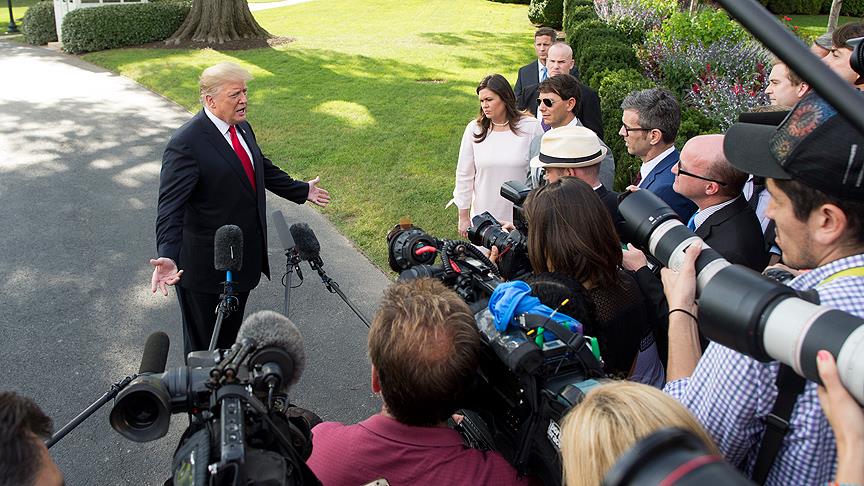
US needs more than fictional heroes to halt decline
The U.S.' global influence and power is rapidly diminishing as a lack of political strategy in U.S. foreign policy is leaving the country more isolated than ever among its allies
Share
In the last days of the campaign season for the midterm elections, attention was suddenly drawn to a foreign policy issue. Interestingly, what made many in America and the international community shift their attention to the Iran sanctions was not the urgency of the situation this time but how the message about the sanctions was delivered by President Trump on Friday. In a tweet with a picture that looks very much like the image and wording of Game of Thrones, at the center of which was a single character, namely President Trump himself, Trump let the international community know sanctions will be announced against Iran on Monday.
The tweet went viral in a short period of time. HBO expressed its discomfort with the use of its series wording by President Trump and shortly after Iran's Qasem Soleimani responded to the threats by Trump by using another image and wording from the same series. It is not clear yet whose idea was to use that picture to announce the coming of sanctions; however, it achieved the publicity desired, if not the deterrence power. However, we will wait to see how the portrayal of president as a hero can change the voting behavior of people in the U.S.
It is one of the times that superpowers and their powers resonate for the American public. Most fictional superheroes in American popular culture were born in the midst of crises, and their challengers have not always been fictional evil characters but those who considered as a menace in the real world. It's no coincidence that the most famous of these characters, Superman, was created in the post great depression period, while the world was entering a major war. Captain America was also born in similar times in the midst of World War II. Both heroes fought against Nazis and communists, respectively. Even Batman, which emerged shortly after Superman, fought a Napoleonic character and challenged those who wanted to steal nuclear materials. Sometimes, these heroes fuel nationalist and patriotic feelings or satisfied feelings of dominance and heroism. They influence the American public, and try to rally Americans and, in some cases, the international community around their own flags. However, they are careful to avoid reflecting their political inclinations in domestic politics.
Their aim is to unite Americans against a threat. They instill hope and optimism. Even in the midst of Watergate and Vietnam, Captain America tried to bring a new and different way of thinking. Later other heroes in the movies, including John Rambo and Rocky Balboa, tried to show similar confidence and optimism to America. Even though there were some in the higher echelons of government that did not think thoroughly, there were always some men who took care of thinking and acting. In later years, John McClane of the "Die Hard" series and Ethan Hunt of the "Mission Impossible" series acted the same way. What made them heroic was the courage and commitment they demonstrated and the moral compass they were alleged to have.
American people and international viewers loved these heroes, and these heroes earned millions of dollars for their production companies. Sometimes, traumas that American public opinion went through in the last two decades remind people of the traumatic decades after the booming 1920s. The great depression and Pearl Harbor generated a pessimism that superheroes helped to defeat. The 9/11 attacks, the Iraq War and the economic meltdown of 2008 generated the need for a different superhero for the U.S. International engagement fatigue and lack of a strategy confused the orientation for the future.
Furthermore, internal division and political polarization together with low confidence in U.S. institutions made it harder for U.S. administrations to reform the current structure. All of these issues necessitate something more than a superhero. In the last few foreign policy crises, we witnessed that external others or foreign rivals fail to bring this unity. Thus, neither movie-like posters nor reviving superheroes can resolve these issues. The election and its aftermath will demonstrate if there will be any way out of these crises. In the meantime, the international community is becoming more concerned about the future of U.S. politics and foreign policy.
[Daily Sabah, 4 November 2018]
Tags »
Related Articles








